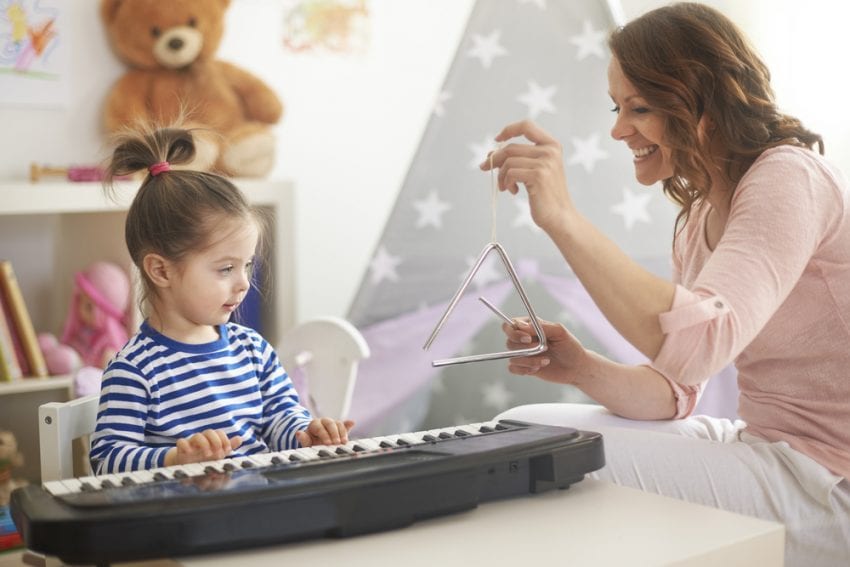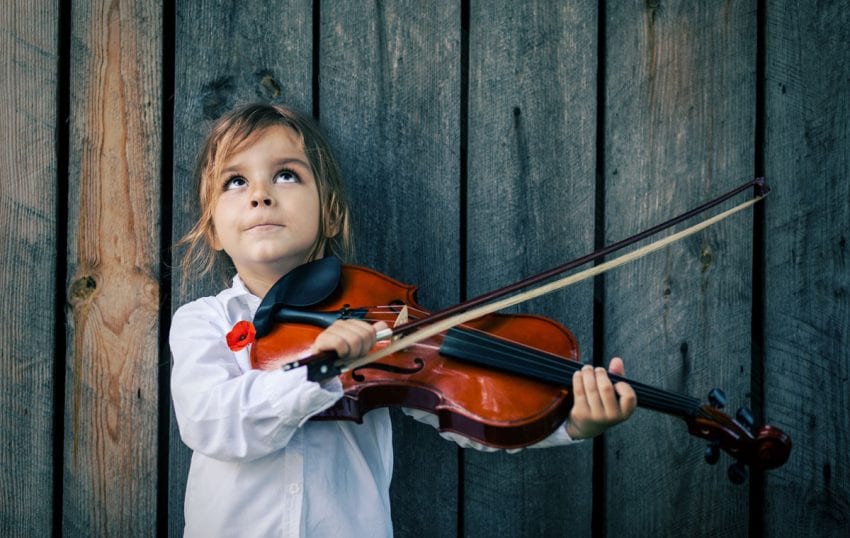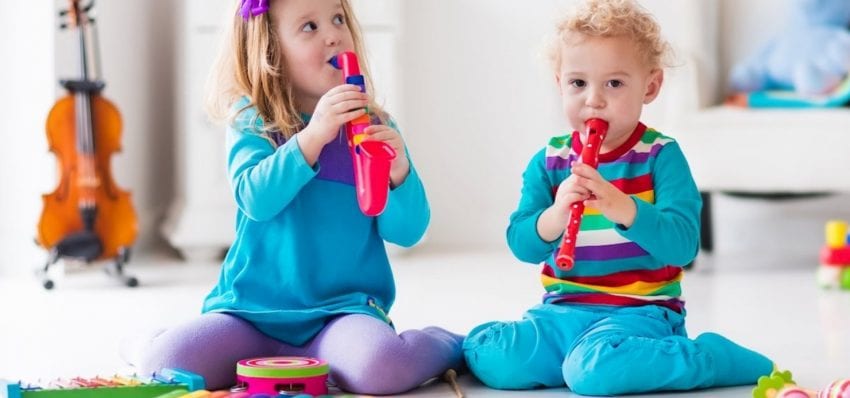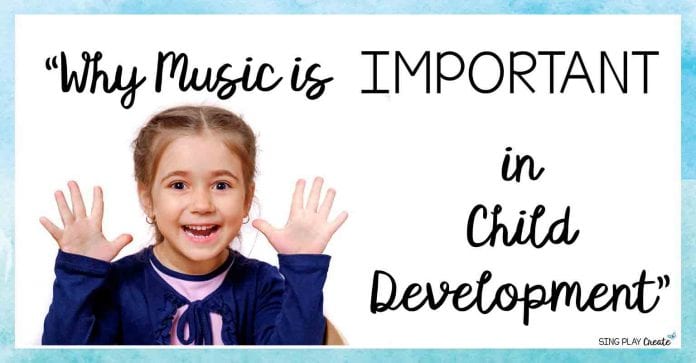It probably comes as no surprise that music is beneficial to children. We’re all exposed to it at an early age, and some of your first memories probably involve a song. It’s more than just intuition– studies have found that childhood musical exposure and learning to play an instrument can speed language, reading, and mathematical skills! Can you imagine growing up with no music? I can’t. This and much more is why music is important for childhood development.
Memory/Retention
Do you know your ABCs? Next time won’t you sing with me?
If you didn’t learn the alphabet by song, how else did you learn it? Music can not only help children to learn the alphabet; it can also be used to teach life skills such as tying shoes, riding a bike, and algebra.
Learning an instrument is an immense memory task, and leads one to learn ways of remembering things with more ease and accuracy. When you learn guitar, you learn to memorize a lot of chords and scales, and then a thousand times as many songs. As a songwriter or singer, you memorize millions of words. Memory only becomes stronger with use, and music is the perfect exercise of thought.

Attention Span/Self-Discipline
In a world constantly grabbing for kids’ attention with 5-second youtube ads and action-packed fast-paced TV shows, finding a way to develop patience, attention, and self-discipline is becoming ever-more important. Learning an instrument requires you to practice for prolonged time periods while avoiding distractions and focusing on a singular task. It might seem like a challenge to get your kid to focus at first, but by exposing them to different styles of music and helping them to find their passion, you can make the learning experience fun and exciting. Learning to practice regularly will teach responsibility and self-disciple, and this will lead to an increased ability to focus on other tasks in life, which is important to doing anything important.
Creativity/Thinking Outside the Box
Have you ever noticed your child humming a made-up tune to their self? It seems as if music is a natural creative human activity. By encouraging this, you can encourage your children to empower themselves with the skill of creative thinking. In music, many problems are solved creatively, from writing harmonies to writing lyrics, to finding alternate chord voicings– the list goes on. Life presents many unexpected challenges, and by learning to think creatively at a young age, you become prepared to face the unexpected. Learning music at an early age can also lead to an interest in other creative pursuits like art or writing.

Muscle and Hand-Eye Coordination
Learning to play music requires hand-eye coordination and both physical and mental dexterity. As your child learns these skills through an instrument like a guitar or piano, it strengthens their overall aptitude in these areas in other parts of life. When they learn how to become good at one thing, it enables them to learn how to become proficient at others. This includes hand-eye coordination and the development of muscle memory.
Improve Mathematical Learning
Making music is all about the rhythm, and rhythm is all about the numbers. From simple fractions in a 4/4 time signature to complex triplets in 7/8, the very beginning of music education starts with learning the complexities of counting time. Learning to read music requires the development of math and language (including a little Italian) skills. Teaching your child to play a song as simple as “Happy Birthday to You” includes a free lesson in addition too!
Making Friends/Social Skills
Music can improve social skills as well, and it’s not just because your kid will be so cool with their guitar at school. Group music lessons or collaborative music programs ask kids to work in teams to accomplish a common goal, that goal being the passing performance of a piece of music. Everyone has to work together, everyone playing their part in time in harmony with the rest, or else the whole thing can become a cacophony. Learning teamwork through music can help your child to learn to work in teams throughout life, an important skill in most careers and work environments.
Career Opportunities
That’s right, there are real people who work as professional musicians. They go to work on a regular schedule, are paid by the hour, and live a steady and fulfilled life. They are the studio musicians, the producers, the sound engineers, the orchestra musicians, etc. They’re not always famous, but they’re getting paid to do what they love.
And what do you need to get your child started on the path of a musician? The market has reached a point when professional equipment is affordable for everyone. Companies like Martin or Taylor have built fantastic mini-guitars that are perfect for children, according to Beginnerguitar.pro. Piano and electronic keyboard brands like Yamaha, Casio or Roland offer highest-quality instruments under $200. I’m not a father yet, but I know for sure that I will do my best to encourage my future kid to get involved in music.

Conclusion
There are so many reasons why music is important to child development that people have written books on it. The benefits are many, the detriments are none, and it’s so easy to find a piano or a nice guitar for your child that you can give them the chance to find out if there’s a musician inside them just waiting to play.









